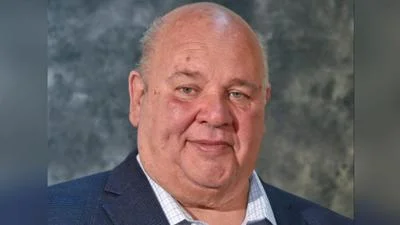Oak Park-River Forest High School | OPRF
Oak Park-River Forest High School | OPRF
OPRF high school administrators recently put more distance between themselves and the academic impact of equalizing freshman year with a “curriculum analysis” that was limited to a survey of student, staff and family feelings.
One conclusion of the contracted survey was [family] “Sentiments included a desire for increased transparency in decision making, additional forums for parents to express perspectives, and a streamlined process for resolving parent concerns.”
OPRF’s Curriculum Chief Laurie Fiorenza started the September 12, 2024 board meeting saying the taxpayer funded contract for a “lived experience survey” with Isobar, a digital technology provider to government agencies, was “NOT to evaluate whether changes were working or not.”
Isobar account manager Nick Kohn described the purpose of the contract was to “gain some experiential insights into the lived experience” of students, staff and families and “not making judgments on the effectiveness of the program.” The survey went to freshman and sophomores with 460 students, 347 parents and 29 staff responding to at least one part of the survey.
Among all academic subjects, students felt the worst about the detracked English curriculum with survey questions on “challenging curriculum,”“captures my interest,”“too fast or too slow,” and “support I need to be successful” all getting failing marks.
Tracking is the practice of grouping students of similar ability levels by curriculum. Detracking presumes all students are of the same ability and a single curriculum is used.
Student results also suggest the detracked curriculum lacks relevance. Failing marks were given for all subjects when it came to questions asking, “things I learn are relevant to my life” and “I understand how it will be used.” All subjects except science failed on the question, “I believe my classes are effectively preparing me for future academic challenges.”
The survey’s section on “social and emotional impact” shows students are feeling good; however, students gave failing marks to all academic subjects on the question, “I can see how the things I learn are relevant to my everyday life.”
Parents gave mostly failing grades for each academic subject and each survey category including: Resources and Curriculum, Instructional Strategies, Relevance and Application, Social and Emotional Impact, Alignment with Mission and Vision, and Alignment with Values.
The survey suggests parents felt students were “accepted by classmates,” learning “critical thinking,” and using “collaboration”; however, parents felt strongly their students do not “connect what they learn to everyday life,” “understand how it will be used,” and the pace of instruction isn’t good.
The policy forcing incoming freshmen of mixed academic abilities into one class level officially began in the fall of 2022 and was in response to allegations of systemic racism championed by Superintendent Greg Johnson, D200 board member Ralph Martire, and others. Fiorenza said on Thursday “we do have an increase in the number of Fs for our black and Hispanic students” citing change between 2022 and 2023.
Fiorenza and the survey didn’t address the achievement gap, the percentage point difference in achievement between black and white students, calculated by the Illinois Board of Education. Between 2021 and 2023, the gap for OPRF grew from 52 to 62 in English language arts, with most of the difference explained by a decline in black student achievement (23 down to 16). White student achievement rose from 75 to 77 during the same period. The gap in mathematics went from 54 to 52; however, achievement levels declined for black and white students.
Prior to serving on the D200 board, Martire led a detracking effort in neighboring River Forest District 90, a K-8 feeder to OPRH high school, that afterwards posted record-low academic scores and lost its Exemplary rating. Minority and low-income students were hit hardest by policy changes.
2023 enrollment at OPRF high school was 3,337, spending per pupil during that period was $24,186, and total district expenditures tallied $102,833,735.






 Alerts Sign-up
Alerts Sign-up